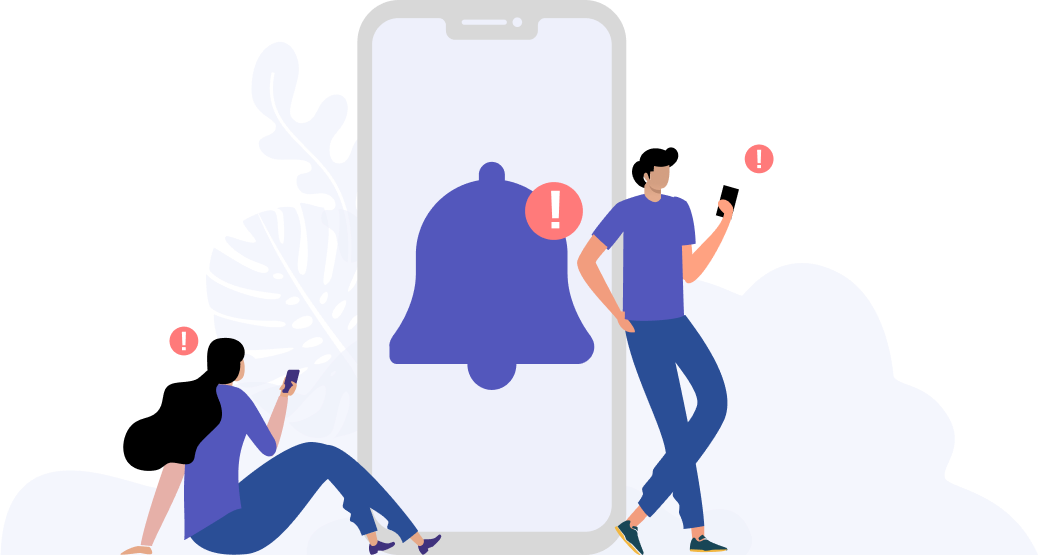Curb Your Child’s Device Dependency With Positive Reinforcement
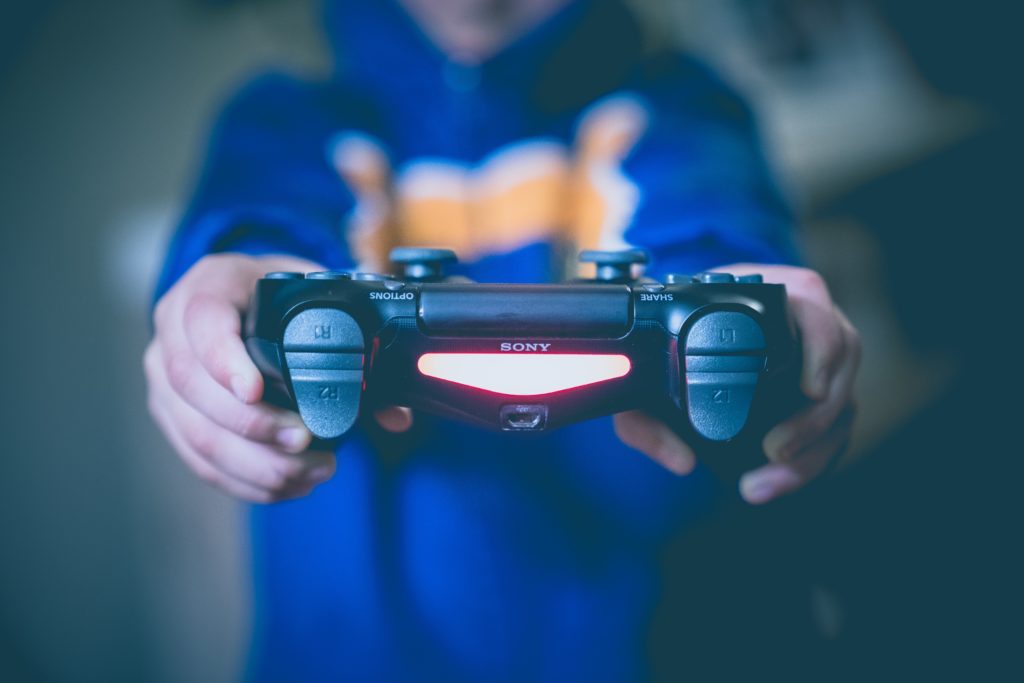
In today’s digital age, parenting feels harder than ever. We have to feed our kids, dress them, put them to bed, take them to school, and on top of all that; ensure they develop a healthy relationship with technology. But while device dependency seems like another problem to add to our long list of worries, it’s not as hard to manage as you may think.
My daughter’s dwindling attention span.
While smartphones are super convenient in providing a great source of entertainment for our kids, they can have a negative impact when used excessively. As a mother of an eight-year-old daughter, I have seen this play out firsthand when we went to go see the fireworks over Marina Bay. My husband and I thought they were fantastic, but I realized halfway through the show that my daughter’s eyes had been glued to her phone the whole time. My initial reaction was to confiscate her phone for the rest of the evening, but this only resulted in a temper tantrum.

Smartphones are good… but not always.
This is a common scenario many parents have dealt with in recent years. While I was annoyed that my daughter couldn’t seem to go without her smartphone for a few minutes- even to watch the fireworks- I also couldn’t blame her. Smartphones are, after all, fun! They provide an endless source of games to play, friends to talk to and photos to look at on Instagram.
While we all want our children to be able to enjoy these aspects of technology, we definitely wouldn’t want them to develop a dependency for them. I’m sure we’ve all felt this way as parents of 21st-century children.
Encouraging responsible behavior with positive reinforcement.
Mounting research online that suggested doing a “digital detox” and confiscating your child’s phone entirely. While it’s important to limit our kids’ smartphone use, it’s not so helpful to take the stimulus away entirely. Our kids will continue to be surrounded by technology well into the future. It would therefore be more beneficial to ensure they learn how to “switch off”- a skill that will be helpful after they have left home.
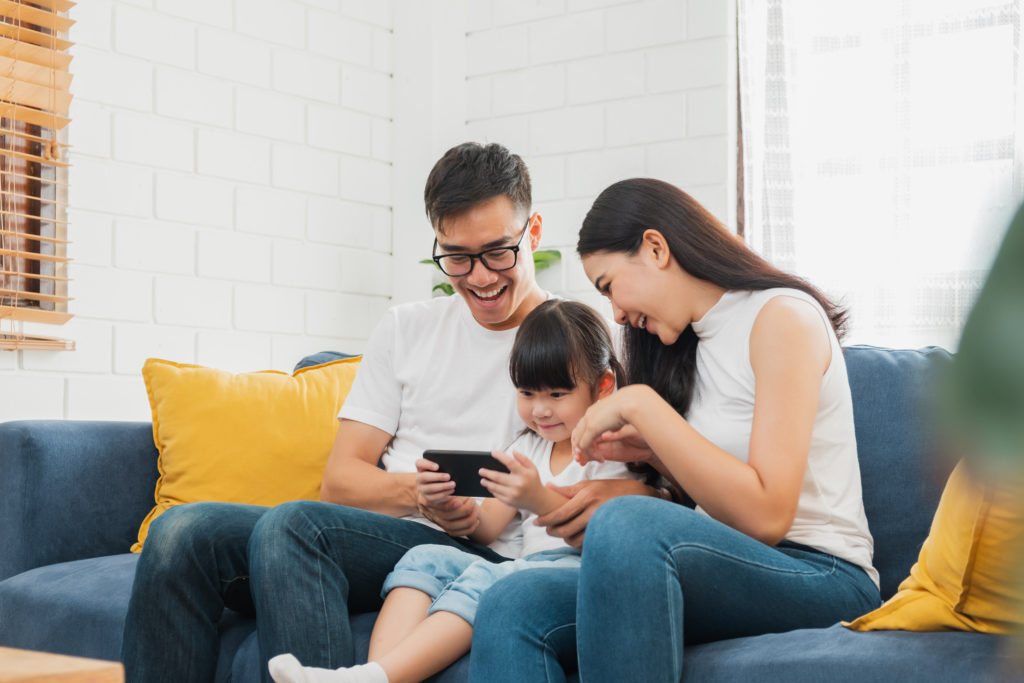
Happy Asian family using tablet, laptop, phone for playing game watching movies, relaxing at home for technology lifestyle concept
In order to change behaviors in the long run, psychologists suggest using a method of disciplining called “positive reinforcement”. Instead of reprimanding your child when they do something wrong (e.g. confiscating their phone when they use it for too long), this technique involves rewarding them when they demonstrate good behavior (e.g. giving praise when they take part in a device-free activity).
In using this technique, I was able to encourage my daughter to develop a healthy relationship with her smartphone in a way that didn’t make her feel like she was just following my commands. This technique has also turned out to be very helpful in preventing temper tantrums- something I’m sure every parent would appreciate.
At this point, you might be wondering ; but how do you go about rewarding your kids for good smartphone use? How do you know when they are practicing good device behavior, and when they are not? Consider using parental control apps! They are there to make it easier.
You’re not alone!
The plano app provides a helping hand in curbing unhealthy screen habits. When downloaded, it runs seamlessly in the background of your child’s smart device and notifies them when they need to take a screen break.
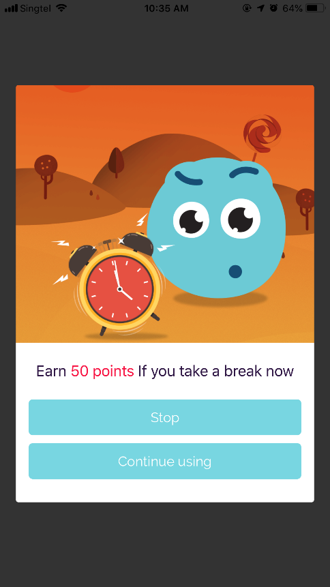
What’s great about plano in particular is that it implements the positive reinforcement technique for you! When your child demonstrates good screen behavior (for example, uses it for less than two hours a day), they are rewarded with points. When they have gathered up a few points, they can use them to request fun, discounted activities in the plano shop. So far, my daughter and I have been tree-top climbing, visited the Natural History Museum and even had a go at pottery!
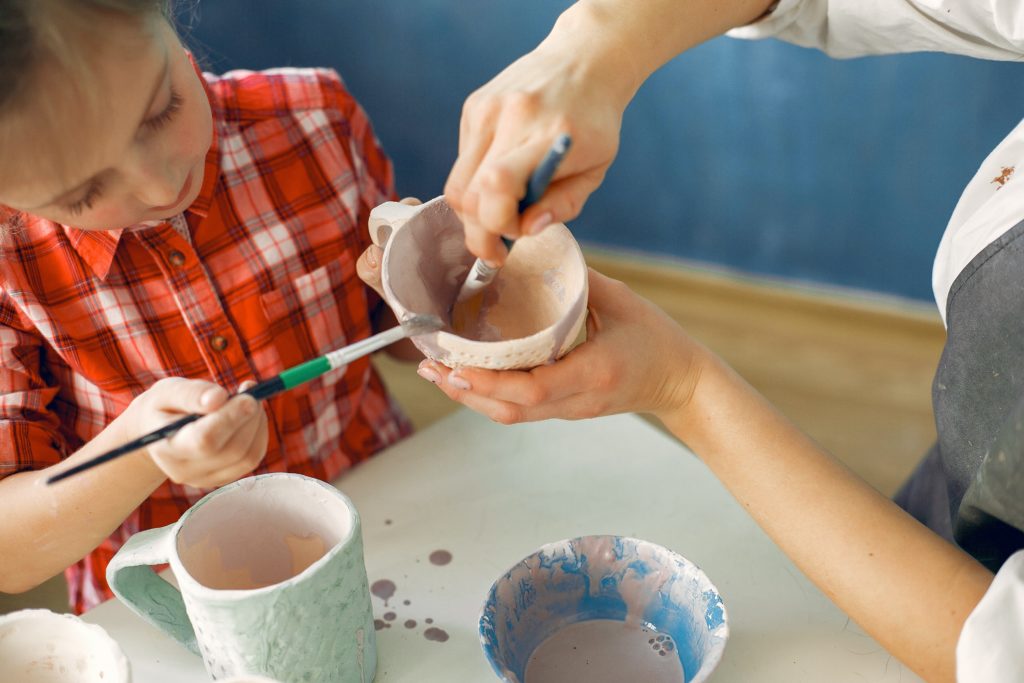
By rewarding your child for good device use, rather than reprimanding them for having bad habits, plano helps tackle device dependency in a positive and uplifting way. And you even get the chance to learn a thing or two along the way!
Tools Designed for Healthier Eyes
Explore our specifically designed products and services backed by eye health professionals to help keep your children safe online and their eyes healthy.





